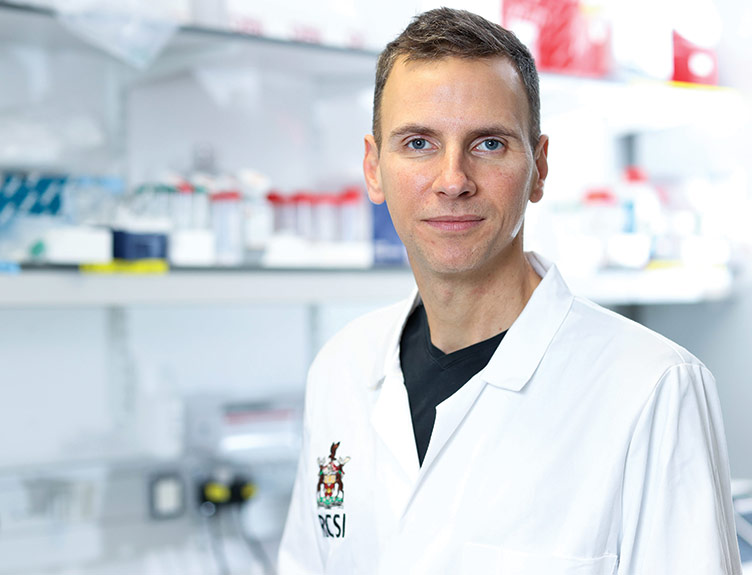RCSI calls for development of national trauma network

Trauma is still the leading cause of death and disability in older children and adults under 45 years of age in Ireland. For every death associated with trauma, at least a further three patients suffer severe disability.
Road traffic accidents and falls remain the major causes of trauma and although medical advances in the last number of years have improved patient outcomes, there is still a need to improve how trauma care is delivered across Ireland, according to Mr Declan J. Magee, President of RCSI (Royal College of Surgeons in Ireland).
Speaking at RCSI's annual scientific meeting Charter Day, the plenary session will address ‘Structuring Definitive Care for Trauma Patients; Now is the Time', Mr Declan J. Magee, RCSI President said: “Optimum care for multiply injured patients is time critical and presents a particular health challenge to any health service. There is an urgent need to examine how trauma care is delivered in Ireland to improve the quality of care for trauma patients so that more patients survive with lower levels of disability. To achieve outcomes in line with best practice in countries such as the USA and the UK, there is a need to develop an integrated system of trauma care delivery in Ireland.”
Trauma refers to patients that present with serious, often multiple injuries or one life changing injury. Major trauma patients have complex injuries that need expert care in order for them to have the best chance of survival and recovery. Approximately 5000 people suffer trauma annually in Ireland.
“From looking at international best practice, it would appear that Ireland could be best served by a small number of trauma centres,” continued Mr Magee. “Improvements are needed at all stages of the patient journey; from pre-hospital through to rehabilitation if we are to effectively reduce trauma morbidity and mortality.”
The initiative by the HSE and the Department of Health (DoH) to develop a National Trauma Network is welcomed and RCSI - the professional body representing all Surgeons and Emergency Medicine Specialists - believes it can play a critical role, working with the HSE and the DoH to develop an inclusive trauma system for the country.
RCSI has welcomed the establishment of the Major Trauma Audit by the National Office of Clinical Audit. “This has been a key initial step in terms of gathering patient outcome data to ensure that trauma service redesign is evidence based. Such data will be of great benefit in shaping an integrated National Trauma Network in Ireland,” Mr Magee concluded.
The RCSI Charter Day meeting will host more than 400 local and international surgical delegates. During the Trauma Services plenary session invited speakers will critique current trauma service delivery in Ireland from a variety of perspectives to stimulate a debate that will inform RCSI policy on proposed restructuring of trauma services in Ireland.
A wide range of clinical areas will also be discussed at the meeting including breast and plastic surgery, head and neck surgery, surgical training, innovations in surgery and gender reassignment surgery. The purpose of the meeting is to promote debate and discussion amongst surgeons to highlight best practice and innovation, advances in surgical practice and to discuss issues of relevance to the surgical profession.
On Saturday, the Charter Day Meetings will continue with annual meeting of the Irish Higher Surgical Training Group and the Bosco O’Mahony Lecture, which will be delivered by Professor Pierce Grace entitled ‘Lifelong Learning'. Professor Patrick G. Johnson from Queen's University Belfast and Professor Stan J. Monstrey from Ghent University Hospital in Belgium will be conferred with Honorary Fellowships of RCSI at a ceremony in the College on Saturday evening. The Charter Day Meetings marks the 231st anniversary of the foundation of RCSI by Royal Charter.



